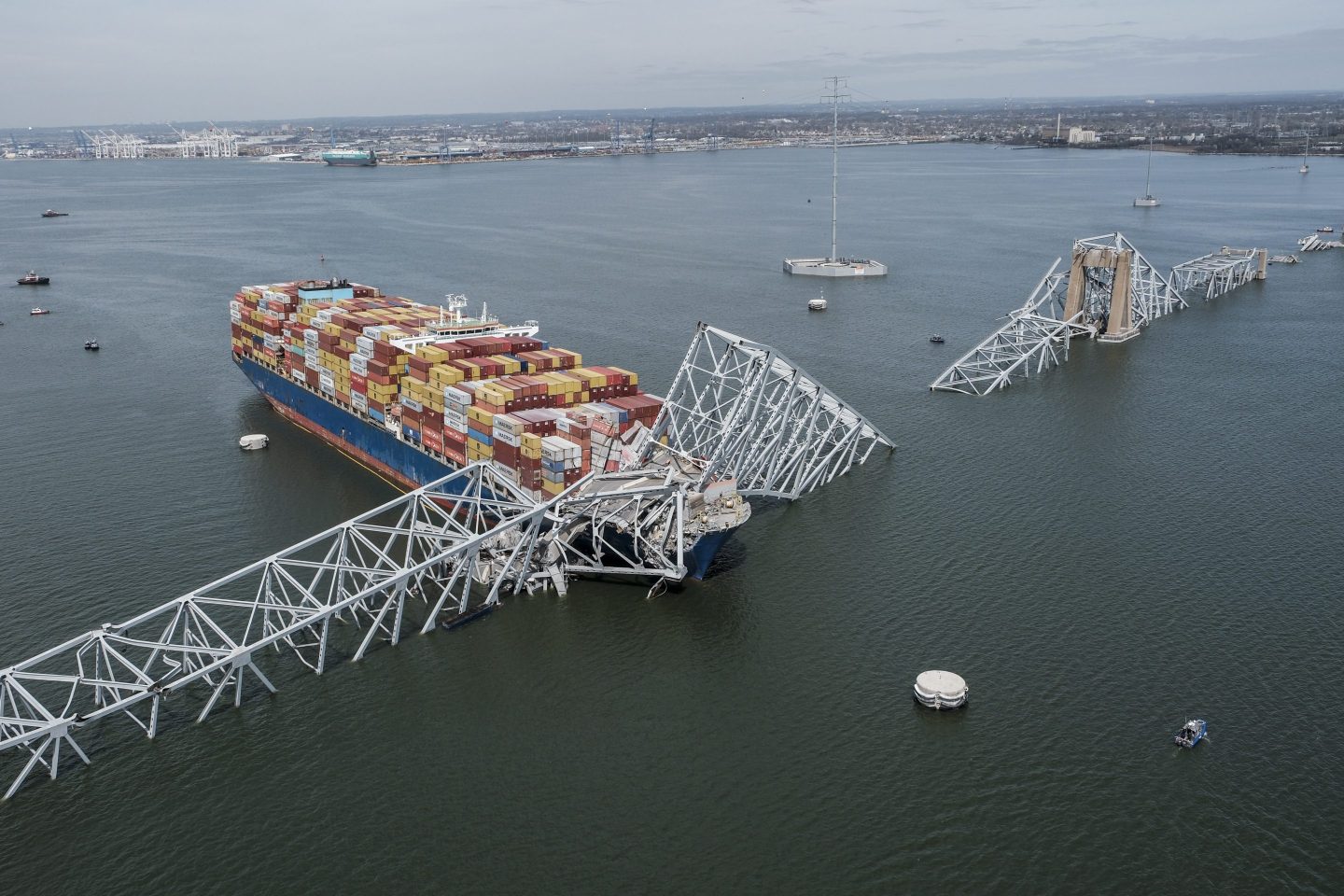President Joe Biden said the federal government should pay to rebuild the Francis Scott Key Bridge in Baltimore, but any efforts to recover some—or all—of those funds from the company that owns the ship that took down the bridge could yield a lengthy legal battle.
The Limitation of Liability Act of 1851, according to a law professor who spoke to Fortune, could afford some protections to Singapore-based Grace Ocean, which owns the Dali, which struck the bridge around 1:30 am ET on Tuesday and collapsed it in mere seconds.
“I expect the ship owner will commence a proceeding in a federal U.S. District Court in Maryland, under the 1851 Limitation of Liability Act, to limit its liability to the post-casualty value of the ship,” said Lawrence Brennan, a professor of admiralty and international maritime law at Fordham University School of Law in New York.
If Grace Ocean seeks such protections, Brennan explained, the company would need to file a petition in federal court and post a bond equivalent to the firm’s valuation of the ship. If the judge approves the petition, the owners of the Dali would only have to pay an amount equal to what the ship is valued at—which is calculated after the crash. Such a sum would be billions less than actual damages.
“The statute is antique,” Brennan continued. “It was designed for sailing ships, and not steel ships. So it has lots of issues, but there’s a long history [of cases] and it’s still valid law in the United States.”
That said, Brennan also believes that it’s most likely the company will seek a pretrial settlement, although Grace Ocean could face additional liabilities under federal admiralty and environmental laws tied to other damages and cleaning up pollution in the harbor. (Grace Ocean couldn’t be immediately reached for comment.)
Although most companies do seek settlements in such cases, perhaps the most famous maritime catastrophe did make it to court: After the sinking of the Titanic in 1912, Oceanic Steam Navigator, which owned the ship, requested the protections of the 1851 law. Although the courts noted that Britain’s regulations were different than those of the U.S., the Second Circuit of the Courts of Appeals granted the protections.
Whatever legal process does unfold, discovery will be especially important as this wasn’t the first major incident involving the Dali, which in 2016 crashed in the Port of Antwerp in Belgium.
Additionally, since Tuesday’s crash occurred caused after the ship lost power, there will be more scrutiny on a June 2023 inspection by Tokyo MoU while the ship was docked in San Antonio, Chile, which discovered deficiencies in the “propulsion and auxiliary machinery.” However, a standard examination by the Coast Guard in September didn’t mention those deficiencies.
In previous incidents involving massive shipping vessels, what’s known as general average—the principle that any losses are shared among all stakeholders, such as shippers, cargo providers, et cetera—has been applied. Brennan said it’s unlikely such a scenario unfolds with the Dali because of the ship’s apparent mechanical problems, meaning the cargo providers could push for stronger claims.
“The ship owner has a duty to exercise due diligence to ensure the seaworthiness of the ship,” Brennan added. “If they don’t do that, they’re not going to recover either.”












